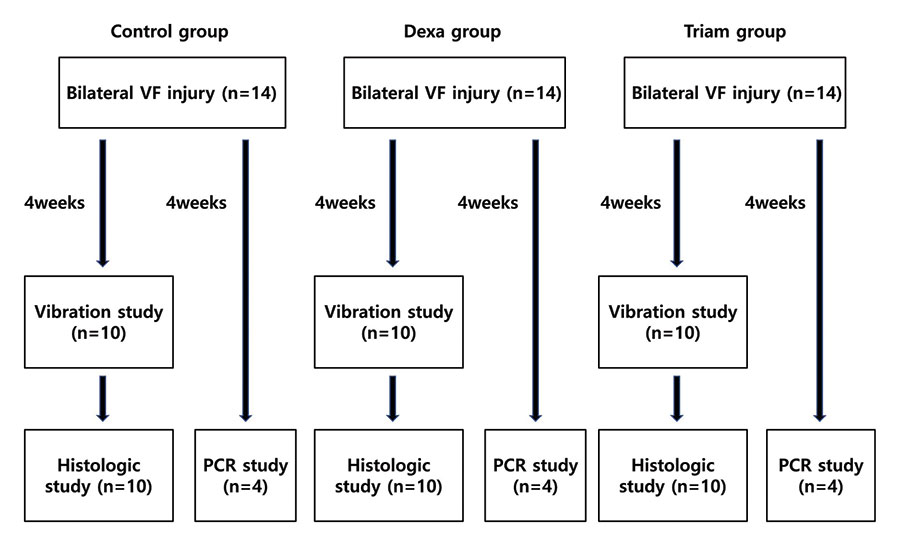Silicone and Gore-Tex implants both provide adequate and comparable results in TT1.

How To: Does Intralesional Steroid Injection Effectively Mitigate Vocal Fold Scarring in a Rabbit Model?
This article assesses the efficacy of intralesional steroid treatment in preventing vocal fold scarring following vocal fold surgery using a rabbit model.
Steroid Sex Hormones Appear Present in and Have Effect on Human and Animal Vocal Folds
Are steroid sex hormones (SSH) present in the vocal folds of animals and humans, and what are the effects of SSH treatment or exposure on vocal fold tissue?
Work Group Delivers Consensus Statement on Administration of Systemic Bevacizumab in Patients with Recurrent Respiratory Papillomatosis
This consensus statement highlights the importance of consultative discussions with patients with RRP and their caregivers regarding bevacizumab as a possible nonsurgical treatment and outlines numerous specific considerations concerning systemic administration of the drug.

Surgeons Share Their Thoughts on Treating Velopharyngeal Insufficiency with Injectables
Correctly identifying the origin or cause of VPI is critical to successful treatment. Surgeons share their thoughts on treating velopharyngeal insufficiency with injectables.
Sodium Oxybate Improves Voice Symptoms in Patients with Alcohol-Responsive LD
What is the efficacy and safety of sodium oxybate versus placebo in patients with isolated laryngeal dystonia (LD)?

How To: Zenker’s Per Oral Endoscopic Myotomy with Partial Mucosal Septum Division Modification
The authors describe their current approach for flexible endoscopic management of Zenker’s diverticulum. This approach uses the latest techniques in flexible Zenker’s surgery, including submucosal division of the muscular common wall, partial mucosal wall division, and watertight closure.

How To: Exoscopic Transoral Supraglottic Laryngectomy
This is a case of an 85-year-old patient with a cT2N0 laryngeal squamous cell carcinoma treated using CO2 transoral laser exoscopic surgery (TOLES).
Platelet-Rich Plasma Injections Promising Treatment Option for Patients with Vocal Fold Scar and Sulcus
PRP injections resulted in improved patient-reported outcome measures and auditory–perceptual measures of voice and are a promising treatment option for vocal fold scar and sulci.

Mausumi Syamal, MD, MS—Engineer First, Laryngologist Second
Laryngology enables Dr. Syamal to apply her love of engineering, fluid dynamics, and the physics of vibrations to the clinical pathology and ENT disease conditions she treats.
- 1
- 2
- 3
- …
- 34
- Next Page »